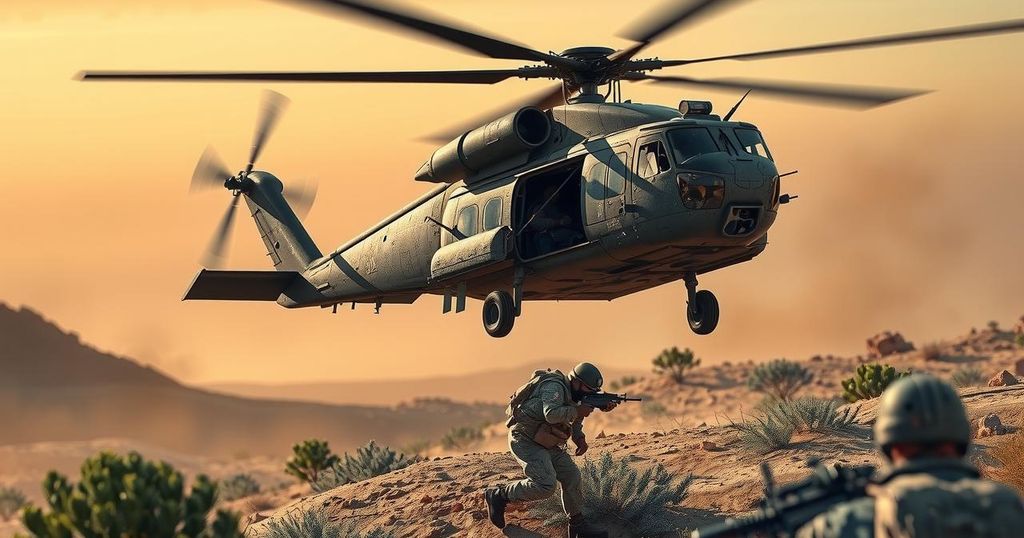Captain Serhiy Muzyka, a helicopter pilot, faced life-threatening gunfire during a UN rescue mission in South Sudan, resulting in the tragic loss of a crew member. Despite being injured, he successfully navigated the damaged helicopter to safety. The incident underscores the dangers faced by peacekeepers amid fragile political agreements in the region, and reflects ongoing concerns about violence and civilian safety in South Sudan.
The recent crisis in South Sudan escalated dramatically when Captain Serhiy Muzyka, a veteran helicopter pilot, faced life-threatening gunfire during a UN rescue mission. With a wealth of military experience from his 43 years of flying helicopters, including previous missions in danger zones, Muzyka encountered unprecedented peril while evacuating wounded soldiers from a military base in Nasir.
On a mission to rescue six injured soldiers, including a general, from the precarious situation in Upper Nile state, Captain Muzyka found himself amidst a shoot-out upon arrival. Tragically, the incident resulted in the deaths of a crew member and numerous South Sudanese soldiers. Despite being shot in the arm, Muzyka managed to maneuver the damaged helicopter to safety, a feat he attributes to his extensive training and experience.
During the evacuation, audio and visual documentation captured the chaos inside the cockpit, revealing Muzyka’s injuries and the severe damage to the aircraft. “It was like a movie,” he remarked, recalling his shock at the unexpected violence. This mission was further complicated by escalating tensions in the region, attributed to a fragile peace agreement between President Salva Kiir and Vice-President Riek Machar, reflecting deep-rooted mistrust among local communities.
Following the attack, Captain Muzyka’s quick thinking allowed him to navigate through difficult conditions. With punctured fuel tanks and damaged systems, he flew low to minimize risk, even as the situation worsened. His crew’s readiness to assist and his strategic decision-making were crucial to successfully landing the helicopter at Malakal airport, 49 minutes after taking off under intense fire.
Once on the ground, medical attention was rendered to the crew and passengers; however, it was too late to save flight attendant Mr. Prykhodko, who succumbed to his injuries. The attack has been labeled by the UN as potentially constituting a war crime, reflecting the severity of the situation.
Captain Muzyka, now back in Ukraine for medical care and to reconnect with his family, contemplates the current global landscape. “Common sense will prevail in the world,” he expressed, indicating hope for peace despite the challenges ahead. Although retirement looms, he continues to feel youthful and enthusiastic about his profession.
Additionally, the crew’s bravery was acknowledged during a ceremony where they received the UN medal of honour in tribute to their efforts under fire.
In summary, Captain Serhiy Muzyka’s near-fatal experience during a UN rescue mission in South Sudan highlights the complexities and dangers faced by peacekeepers in conflict zones. The tragic loss of a crew member underlines the severe risk these missions entail, while the recognition of their bravery by the UN underscores the ongoing challenges in maintaining peace in war-torn regions. As Muzyka returns to Ukraine, he carries with him a hope for a more peaceful future, and the resilience emblematic of his long career in aviation.
Original Source: www.bbc.com






